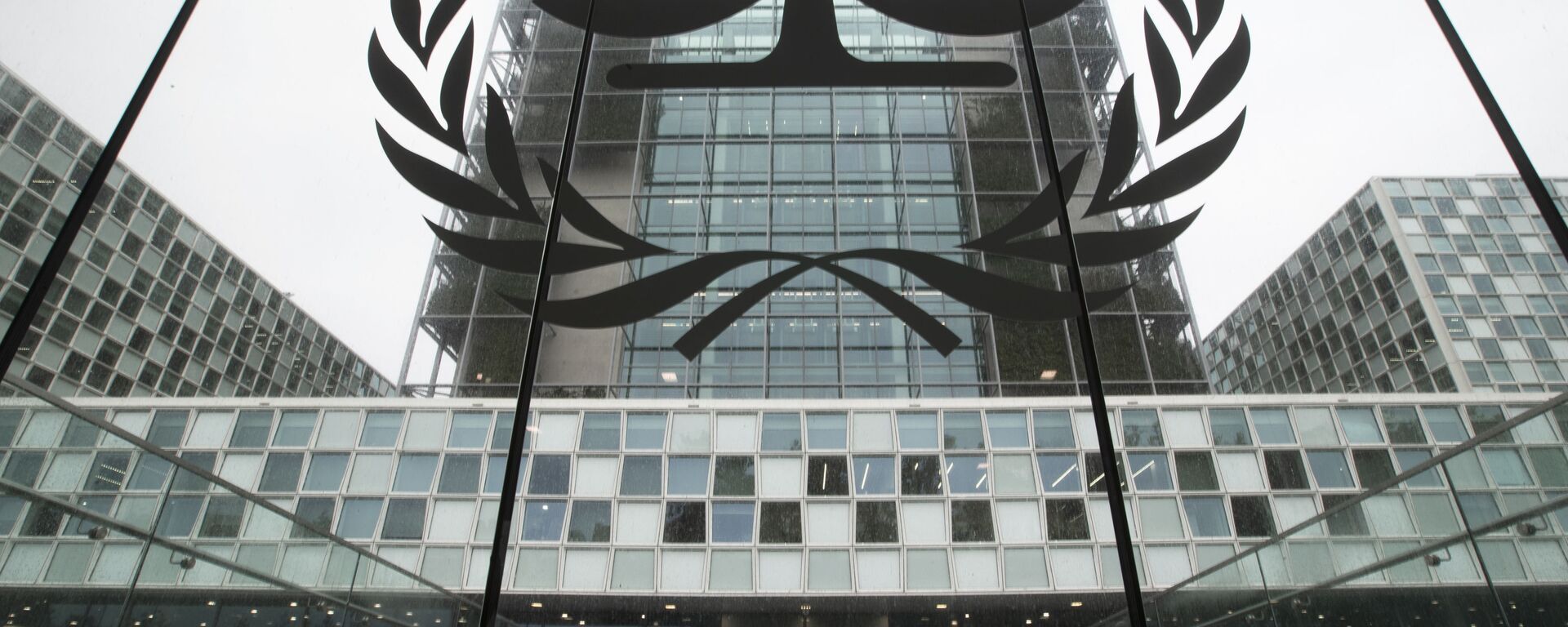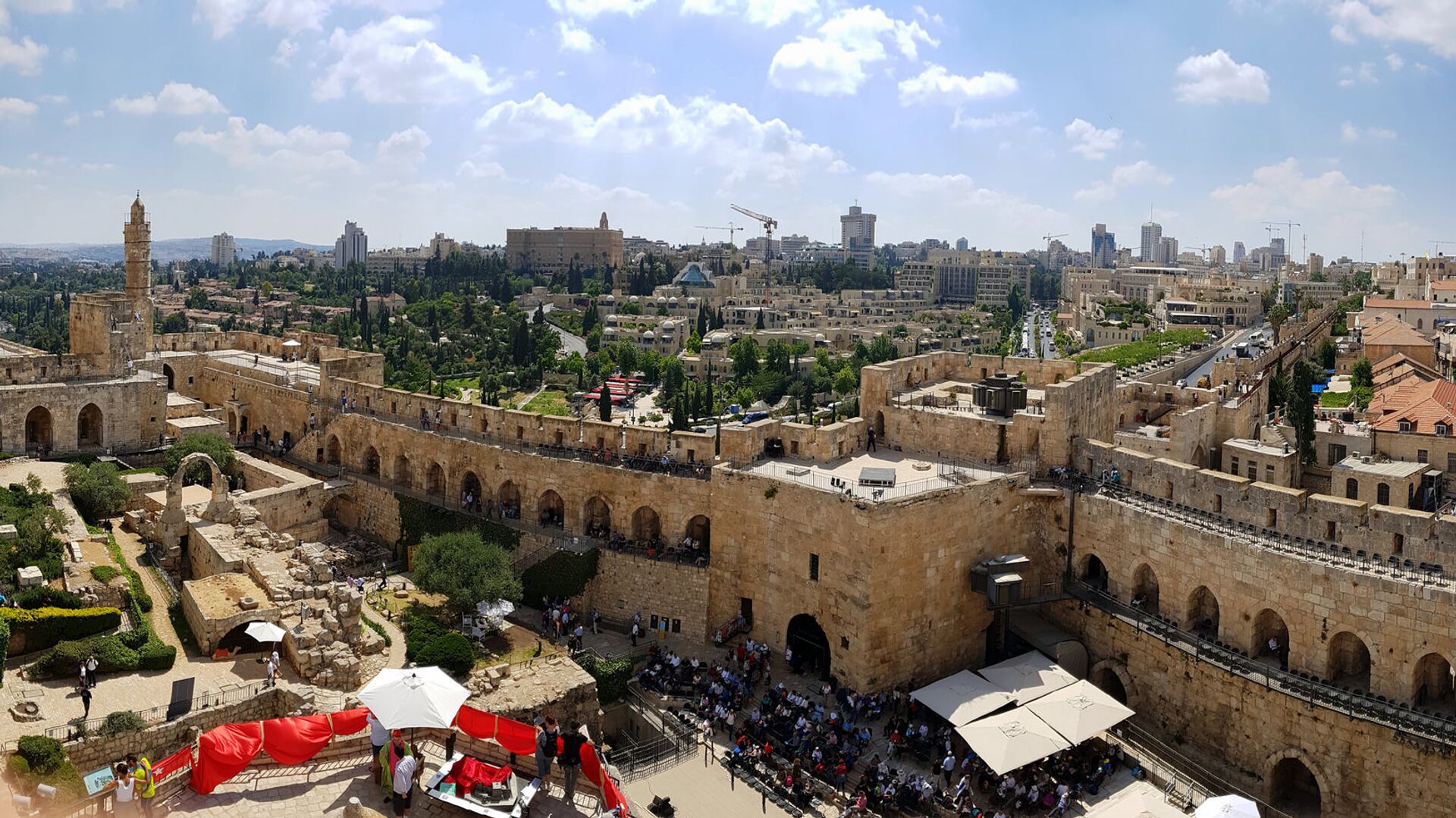https://sputnikglobe.com/20210916/palestinians-welcome-egypts-mediation-between-israel--palestinians-but-will-it-yield-results-1089117221.html
Palestinians Welcome Egypt's Mediation Between Israel & Palestinians But Will It Yield Results?
Palestinians Welcome Egypt's Mediation Between Israel & Palestinians But Will It Yield Results?
Sputnik International
The Palestinians are divided and thus do not have a common goal. The Israeli government is not determined enough to push for a peace deal, and would rather... 16.09.2021, Sputnik International
2021-09-16T07:34+0000
2021-09-16T07:34+0000
2021-09-16T07:34+0000
egypt
palestinian national authority (pna)
newsfeed
world
middle east
israel
https://cdn1.img.sputnikglobe.com/img/105979/39/1059793927_211:0:1838:915_1920x0_80_0_0_b7ec09b988fe648b4b402b8735ee996b.jpg
Samer Sinijlawi, a Fatah activist from Jerusalem, was not surprised when news about the meeting between Egypt's President Abdel Fattah al-Sisi and Israeli Prime Minister Naftali Bennett was made public. Egypt has been an active mediator between Israel and the Palestinians for decades and al-Sisi's recent attempt to revive the peace talks was just another initiative.Welcoming Egyptian EffortsJust like many Palestinians around him, Sinijlawi says he welcomed the move taken by the Egyptian president and he believes it could be beneficial to the region.Israel Not Seeking SolutionsThe problem is, says the activist, these aspirations are still remote and he pins the blame for this on Israel and its actions vis-a-vis the Palestinians."We see how Israel's settlement activity is expanding, their infrastructure is growing, Jews keep enjoying rights, Israeli Arabs have some, whereas the Palestinians are kept in the dark".The first Israeli settlement in the West Bank was established in 1967, after Israel captured the area from Jordan in the Six-Day War. Since then, hundreds of settlements have been established, and today there are more than 250 of them in the West Bank. They house some 430,000 Jews.The tenure of former Prime Minister Benjamin Netanyahu was associated with extensive settlement activity. His name has also been linked to the persecution of the Palestinians, but Sinijlawi says the current government is not much different and will not bring about the much-needed change."So far, the Bennett government hasn't taken any serious steps in the direction of reaching peace with the Palestinians. They are not ready to end the occupation. They are just open to shrinking it".Sinijlawi is far from being the only Palestinian who thinks that way.In February 2020, a poll conducted by the Ramallah-based Palestinian Centre for Policy and Survey Research found that while support for a two-state solution had dropped to 40 percent, the absolute lowest since the signing of the Oslo Accords in 1993, a one-state solution received the backing of 37 percent of respondents, compared to the 28 percent registered in January of that same year.Fault of the Palestinians?The drop in support for the two-state solution can partially be explained by Israel's growing settlement activity, but Sinijlawi says the Palestinian leadership is equally guilty for the lack of any progress on that front."One of our major weaknesses is the split between the West Bank and Gaza", said the activist referring to the chasm that inceased in 2007 following the Hamas takeover of the Strip and the subsequent ouster of Fatah.Sinijlawi's accusations are nothing new. In the past some members of Fatah, the ruling party of Abbas, have shared similar views. They accused him of poor leadership, corruption, and the desire to keep his post at all costs, accusations that became louder following his decision to cancel the legislative elections that were supposed to take place on 22 May."There is nothing that the Palestinians can do right now. They need to wait until he is gone from the political scene, and the younger generation, that's more connected to the people, takes over".For now, says Sinijlawi, the Palestinians are waiting and the peace process is at an impasse. But the activist warns that time is a precious commodity that neither the Palestinians, nor the Israelis have.
https://sputnikglobe.com/20210205/icc-decides-its-jurisdiction-extends-to-territorries-controlled-by-israel-since-1967-six-day-war-1081991985.html
egypt
israel
Sputnik International
feedback@sputniknews.com
+74956456601
MIA „Rosiya Segodnya“
2021
News
en_EN
Sputnik International
feedback@sputniknews.com
+74956456601
MIA „Rosiya Segodnya“
Sputnik International
feedback@sputniknews.com
+74956456601
MIA „Rosiya Segodnya“
egypt, palestinian national authority (pna), newsfeed, middle east, israel
egypt, palestinian national authority (pna), newsfeed, middle east, israel
Palestinians Welcome Egypt's Mediation Between Israel & Palestinians But Will It Yield Results?
The Palestinians are divided and thus do not have a common goal. The Israeli government is not determined enough to push for a peace deal, and would rather shrink the "occupation" instead of eradicating it, says a Palestinian activist.
Samer Sinijlawi, a Fatah activist from Jerusalem, was not surprised when news about the meeting between Egypt's President Abdel Fattah al-Sisi and Israeli Prime Minister Naftali Bennett was made public.
Egypt has been an active mediator between Israel and the Palestinians for decades and al-Sisi's recent attempt to revive the peace talks was just another initiative.
Welcoming Egyptian Efforts
Just like many Palestinians around him, Sinijlawi says he welcomed the move taken by the Egyptian president and he believes it could be beneficial to the region.
"If there are peace talks, they could achieve a lot of things. They could create better and more trustworthy relations between Israel and the Palestinians. They could potentially lift the siege on Gaza [imposed in 2007 following the takeover of Hamas - deemed a terrorist organisation by Israel - ed.] and they could improve the lives of Gazans".
Israel Not Seeking Solutions
The problem is, says the activist, these aspirations are still remote and he pins the blame for this on Israel and its actions vis-a-vis the Palestinians.
"We see how Israel's settlement activity is expanding, their infrastructure is growing, Jews keep enjoying rights, Israeli Arabs have some, whereas the Palestinians are kept in the dark".
The first Israeli settlement in the West Bank was established in 1967, after Israel captured the area from Jordan in the Six-Day War.

5 February 2021, 18:19 GMT
Since then, hundreds of settlements have been
established, and today there are more than 250 of them in the West Bank. They house some 430,000 Jews.
The tenure of former Prime Minister Benjamin Netanyahu was associated with extensive
settlement activity. His name has also been linked to the persecution of the Palestinians, but Sinijlawi says the current government is not much different and will not bring about the much-needed change.
"So far, the Bennett government hasn't taken any serious steps in the direction of reaching peace with the Palestinians. They are not ready to end the occupation. They are just open to shrinking it".
"While it might solve the problem for one or two years, it cannot be a permanent arrangement. And Israel needs to decide with itself whether it would prefer to stick to the two-state solution or create one state for both Israelis and the Palestinians, where both peoples will enjoy equal rights".
Sinijlawi is far from being the only Palestinian who thinks that way.
In February 2020, a poll conducted by the Ramallah-based Palestinian Centre for Policy and Survey Research found that while support for a two-state solution had
dropped to 40 percent, the absolute lowest since the signing of the Oslo Accords in 1993, a one-state solution received the backing of 37 percent of respondents, compared to the 28 percent registered in January of that same year.
Fault of the Palestinians?
The drop in support for the two-state solution can partially be explained by Israel's growing settlement activity, but Sinijlawi says the Palestinian leadership is equally guilty for the lack of any progress on that front.
"One of our major weaknesses is the split between the West Bank and Gaza", said the activist referring to the chasm that inceased in 2007 following the Hamas takeover of the Strip and the subsequent ouster of Fatah.
"Once this problem is solved and there is a reconciliation between the factions, it will be easier to talk peace with the Israelis. The problem is that the current leadership, headed by President Mahmoud Abbas, is not interested in resolving the crisis".
Sinijlawi's accusations are nothing new. In the past some members of Fatah, the ruling party of Abbas, have shared similar views. They accused him of poor leadership, corruption, and the desire to keep his post at all costs, accusations that became louder following his decision to
cancel the legislative elections that were supposed to take place on 22 May.
"There is nothing that the Palestinians can do right now. They need to wait until he is gone from the political scene, and the younger generation, that's more connected to the people, takes over".
For now, says Sinijlawi, the Palestinians are waiting and the peace process is at an impasse. But the activist warns that time is a precious commodity that neither the Palestinians, nor the Israelis have.





